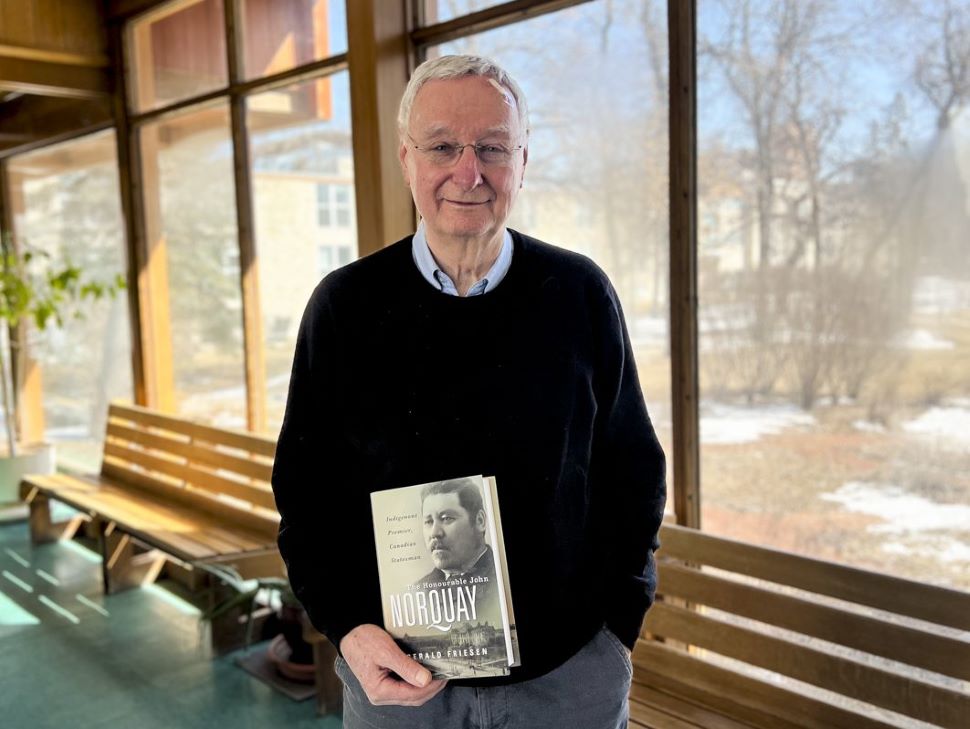A book about one of Manitoba’s most influential figures has received recognition from one of Canada’s most prestigious non-fiction awards.
The J.W. Dafoe Book Prize has announced that its 2025 recipient is The Honourable John Norquay: Indigenous Premier, Canadian Statesman, released last year by University of Manitoba professor emeritus Gerald Friesen.
“It’s a surprise and remarkable validation of where I spent the last decade because it took a long time to write this book,” Friesen said in an interview on Morning Light.
Listen to the full interview with Gerald Friesen here:
Your browser does not support the audio element.
After Friesen’s retirement from the U of M’s history department in 2011, he was looking for a project to occupy his time. What he found was a collection of letters written by Norquay that his family had preserved, typed about by a MA student at the university that had been kept at the Manitoba Archives. “I knew this was a gold mine from an historian’s point of view,” Friesen recalls, noting that the collection contained everything from his political career and tenure as premier from 1878 to 1887 to business dealings to personal correspondences.
While he had studied Norquay during his academic career, Friesen found that these letters shed a more personal light onto the former premier’s character and personality. “The letters helped make it clear first, how honest he was, which is something his supporters always said, but it’s nice to get verification of something like that,” Friesen says. “Another was how respected he was by senior members of his staff and by business and clergymen and other leaders in the province. He was definitely an exceptional individual, and so to learn why they thought that was very striking for me.”
With all of the new research into Norquay’s life comes a more nuanced picture of his life, including a complicated relationship with Louis Riel where he did not support the second uprising at Batoche. Friesen also underlines a series of conflicts between Norquay and Prime Minister John A Macdonald in the earlier years as Manitoba asserted its place in Confederation. On balance, though, Friesen asserts that Norquay was pivotal not only in the growth of the country, but of Manitoba and Winnipeg as well.
“You wouldn’t believe the difference,” Friesen says, citing photographs in his book that show a “before and after” from Norquay’s premiership of the section of Main Street in front of City Hall. “Shack sort of buildings in 1881, a complete downtown, 1887: streetcar, telephone poles, power lines, a full city. And it happened right during Norquay’s administration.”

